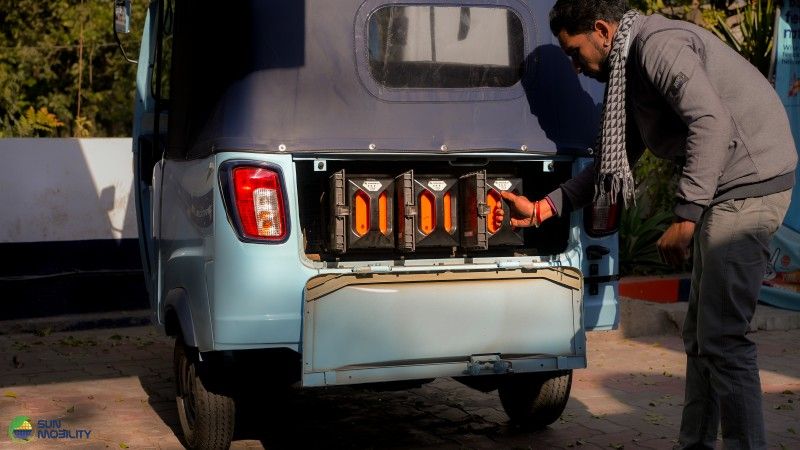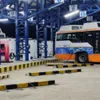India and are working together to expand the deployment of electric vehicles (EVs) integrated with battery swapping technology for the ecommerce giant's transportation and logistics services.
These EVs will contribute to Amazon's commitment to adding 10,000 electric vehicles to its India delivery fleet by 2025, which it had announced in 2020. The company continues to work with local OEMs like SUN Mobility to build its EV fleet.
Chetan Maini, Co-founder and Chairman of SUN Mobility, said, “We are delighted by the opportunity of collaborating with an ecommerce giant like Amazon India. We believe that this deployment will enable us to tangibly impact the rapidly growing ecommerce and delivery segment by making ‘refuelling’ of electric vehicles faster, cheaper, and more convenient for fleet operators. Our comprehensive MaaS offering will offer robust and supportive infrastructure that will cater to the new mobility paradigm, making India a global differentiator and a leader in this transformation of mobility.”
Leveraging SUN Mobility’s MaaS (mobility-as-a-service) offering, the deployment will provide Amazon India and its delivery service partners (DSPs) with an electric mobility solution that is integrated with smart batteries, along with access to a wide network of SWAP POINTS. Currently, SUN Mobility is setting up its SWAP POINTS across its customer locations including Amazon warehouses in major cities like Delhi, Bengaluru, Mumbai, Pune, Ahmedabad, Jaipur, and Hyderabad.
The expanded deployment will further bolster Amazon’s efforts to implement more sustainable practices in its operations, as well as contribute to its Climate Pledge goals – a commitment to achieve net-zero carbon by 2040, 10 years ahead of the Paris Agreement.

Battery Swapping in Three Wheelers
Commenting on the deployment, Abhinav Singh, Director – Customer Fulfilment, Supply Chain and Global Specialty Fulfilment, Amazon India, said, “The collaboration with SUN Mobility represents another step in our journey towards reducing carbon emissions and the environmental impact of delivery operations.
He added, "We will continue to invest in the electrification of our delivery fleet as we work towards the goal of adding 10,000 EVs across partner platforms to our fleet by 2025. With the government also encouraging the development of sustainable and innovative business models for ‘Battery or Energy as a Service’, we are committed to supporting India’s progress in the e-mobility industry to achieve its environmental sustainability goals.”
As part of an existing pilot programme, SUN Mobility had already successfully deployed over 100 loaders powered by swappable batteries with Amazon India’s delivery network partners for rapid deliveries, which the two companies now plan to replicate in more metro cities and in other operational areas. SUN Mobility’s offering will enable a high EV fleet uptime for Amazon’s network partners via two-minute battery swaps, supporting Amazon’s expanding logistics network without being constrained by charging infrastructure.
SUN Mobility aims to onboard over a million vehicles by 2025, the accomplishment of which will be accelerated through its MaaS offering. It has already commenced the deployment of its solutions to ecommerce and goods delivery players across major cities such as Delhi-NCR, Bengaluru, and Chandigarh and plans to further expand to other cities across the country.
It has onboarded hundreds of such vehicles across multiple fleet operators and currently has a robust order book to deploy thousands more.
Edited by Saheli Sen Gupta

